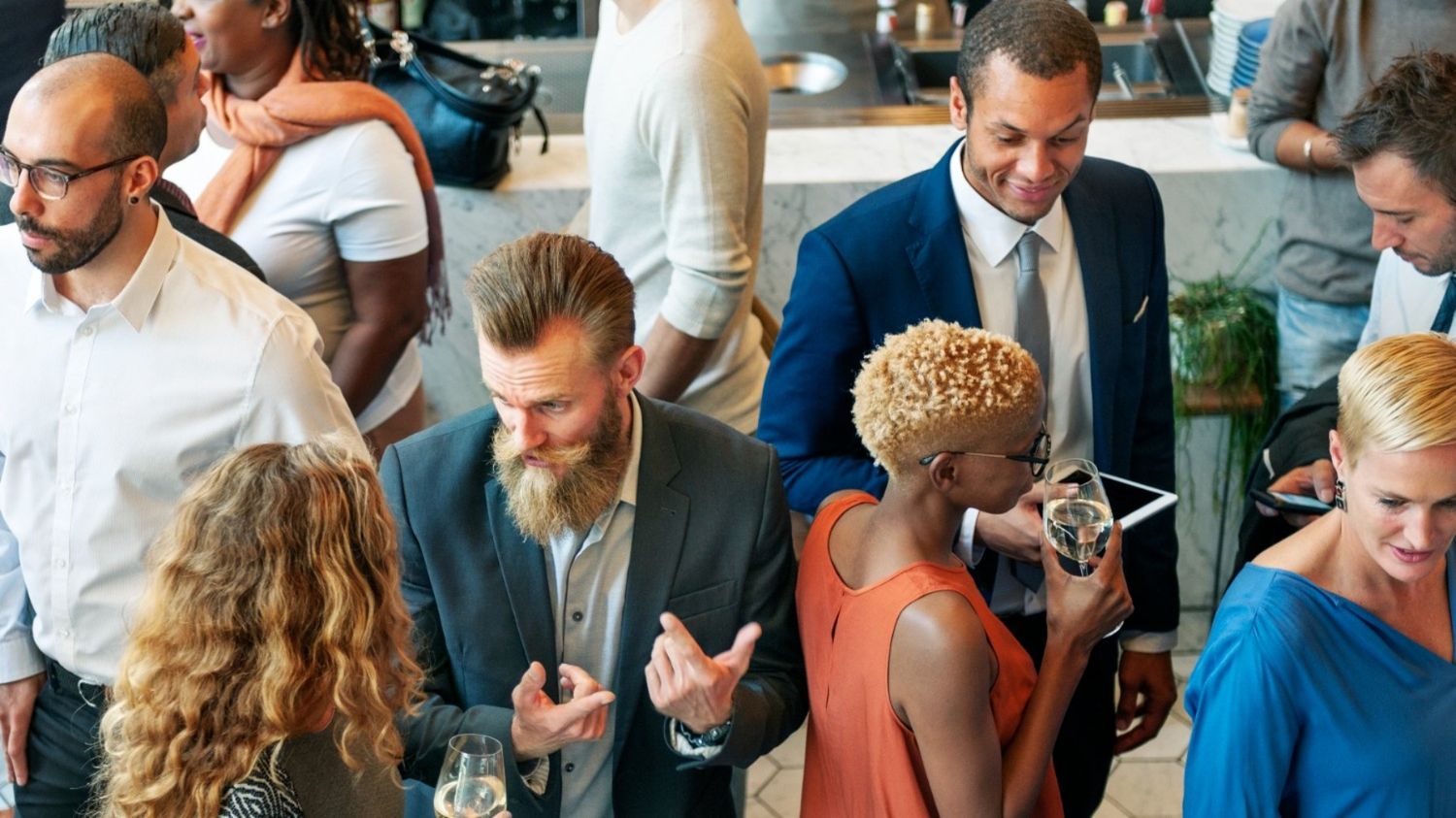
The Role of AI in Event Management
Last Updated: September 19, 2025
AI is changing how events are planned, run, and experienced. It’s not some fancy thing for the future, it is already working behind the scenes at conferences, meetings, and all sorts of events. The role of AI in event management is growing every day. From sending timely reminders to suggesting the perfect networking match, AI is quietly taking care of the details.
This blog explores how AI in event management is helping both planners and attendees, making things simpler, smoother, and just… better. We’ll also look at a few real AI Trends to show what AI looks like in action, without making this blog feel like an ad.
How AI is Changing Event Planning and Management?
Smarter Scheduling and Real-Time Updates
Event planning can feel like managing controlled chaos, juggling room bookings, coordinating speaker times, and adapting to sudden changes. AI steps in to keep things running smoothly and reduce the stress.
- Sends real-time updates when a session changes rooms or times
- Alerts attendees about schedule tweaks instantly
- Delivers personalized reminders based on each user’s itinerary
No more flipping through printed agendas. Everyone stays in sync, and nothing gets missed.
Predicting What Will Happen
Before any event, there’s always the question: “How many people will show up — and where?” AI helps answer that by analyzing past data and real-time registration trends.
- Predicts session attendance
- Flag rooms are likely to be overcrowded (or underused)
- Helps optimize staff and volunteer placement
Automating the Boring Stuff
A lot of event planning is about doing the same tasks again and again — sending emails, checking people in, and making reports. AI takes over these mundane tasks, allowing planners to spend more time on the important aspects. It saves time and cuts down mistakes, which is a win for everyone. AI takes over these admin jobs so planners can focus on more creative, high-value work.
- Automates check-in using QR codes or facial recognition
- Sends confirmation emails and reminders automatically
- Tracks attendance in real time without manual input
According to recent data, 50% of event planners already use AI, and those using automation report saving over 200 hours per year. That’s a huge win for productivity.
Engagement Without the Guesswork
AI learns what you like — what you tap, bookmark, or attend, then uses that to help you discover more of what matters. Hence, the role of artificial intelligence in attendee engagement can’t be overlooked.
- Recommends meetups based on your interests
- Pushes targeted polls and surveys
- Highlights trending sessions using real-time data
Feedback That Feels Easy
Nobody likes end-of-event surveys. AI makes feedback feel natural and automatic.
- Prompts quick star ratings after sessions
- Sends micro-surveys while the memory is fresh
- Analyzes feedback patterns without manual sorting
Better data, less effort, more useful takeaways.
What Types of AI Tools are Used in Event Management?
Let’s break down a few of the best AI tools for managing events that are simplifying workflows, improving quality, and making events smarter.
1. Beautiful.ai – For Stunning Presentations
What it does:
Beautiful.ai is an AI-powered design tool that lets you build clean, branded presentations without needing a graphic designer. Whether you are pitching to sponsors, creating slide decks for speakers, or reporting ROI to stakeholders, this tool ensures it all looks polished.
How it helps:
The platform applies real-time design rules, automatically adjusting layouts, colors, and fonts to maintain visual consistency. It’s a major time-saver, especially for teams juggling multiple decks.
Smart Uses:
- Design sponsor pitch decks that follow brand guidelines
- Generate post-event performance reports with charts, data, and visuals
- Collaborate across teams on speaker presentations without design bottlenecks
2. Zenus – For Ethical Facial Analysis
What it does:
Zenus uses AI to read crowd emotions through facial expressions, without identifying anyone. It detects mood, engagement, and energy levels across different areas of your event, all while being GDPR-compliant and privacy-first.
How it helps:
Instead of relying solely on surveys, organizers get instant feedback on what’s working. Zenus delivers heatmaps and engagement scores that help you rethink everything from session length to lighting. Gather masses of invaluable information using AI for virtual events and in-person events.
Smart Uses:
- Measure emotional response to keynotes or breakout sessions
- Identify the most engaging zones of your venue in real time
- Use facial sentiment data to improve content for future events
3. Google Tools + Gemini – For Collaborative Event Planning
What it does:
Google’s suite of tools—like Docs, Sheets, Calendar, and Slides, is already a staple for most teams. But with Gemini AI integrated into these tools, event organizers get a serious productivity upgrade. Gemini can draft content, analyze data, suggest timelines, and even auto-summarize meeting notes.
How it helps:
From drafting speaker bios to managing event budgets, these tools support smooth collaboration across teams. Gemini helps you automate repetitive tasks, surface key insights, and keep everything moving, without ever needing to switch platforms.
Smart Uses:
- Use Google Docs with Gemini to write and revise emails, session descriptions, or event announcements
- Organize and track your event budget in Google Sheets, with Gemini helping you spot trends and flag overspending
- Create and share a master timeline in Google Calendar, setting automated reminders for tasks and vendor deadlines
- Summarize long planning meetings instantly or generate a to-do list based on your meeting notes in Google Meet or Docs
4. InVideo – For Easy Video Creation
What it does:
InVideo is a simple drag-and-drop video editor that uses AI to help you script, edit, and brand videos for events. You don’t need a video team—just your content, some ideas, and InVideo’s smart templates.
How it helps:
Whether you are hyping up a keynote speaker, creating an Instagram teaser, or putting together a sizzle reel post-event, InVideo helps make video production quick, affordable, and accessible to anyone on your team.
Smart Uses:
- Produce pre-event trailers or countdown videos for social media
- Highlight key takeaways in quick recap clips
- Generate testimonial montages with branded overlays for sponsors
5. Canva – For All-in-One Design with AI Magic
What it does:
If Photoshop and Illustrator feel intimidating, Canva is your creative escape. It lets you design everything from social media graphics to brochures—and now with AI tools, it’s even more powerful. You can generate images, audio, and even videos using simple prompts.
How it helps:
Canva’s AI features speed up the design process with user-friendly templates and auto-generated content. Plus, its team collaboration features make design reviews a breeze.
Smart Uses:
- Generate beautiful, branded webinar graphics using your brand kit
- Remove backgrounds from speaker bios or product shots with a single click
- Create print-ready invitations with bleed marks for exclusive dinners or private events
- Build copyright-free background music and voiceovers for highlight videos
6. Vendeleux – For Smarter Event ROI and Audience Targeting
What it does:
Vendeleux is a data-driven platform that helps you measure event performance and make better sponsorship or attendance decisions. It draws from a proprietary database of over 200,000 global B2B events and attendee insights to support smarter planning.
How it helps:
Vendeleux tackles this head-on, transforming data into action. You can use it to assess which events will generate the best ROI, compare sponsorship packages, and monitor competitor participation.
Smart Uses:
- Get real-time alerts when clients or competitors register for industry events
- Discover high-value events based on your target personas (e.g., hotel marketing teams)
- Compare sponsorship deals based on actual attendee behavior and demographic data
- Plan your annual events calendar using performance-backed predictions—not guesswork
How AI Makes Events Better for Attendees
Personalized Suggestions
No one wants to miss a great session. AI looks at what you’ve checked out or liked and suggests talks or meetups you might enjoy. It’s like having a friend whispering, “Hey, check this out!” This level of personalization significantly boosts attendee satisfaction, with 71% of consumers expecting brand interactions to be tailored to their needs, and the same applies to event attendees. It’s like having a digital guide say, “You might like this.”
- Tailored recommendations
- Alerts for trending sessions before they fill up
- Relevant panels based on your goals
Instant Updates
When rooms change or a session runs late, you’re not left guessing. AI keeps you informed in real time.
- Updates your personal schedule
- Sends alerts before anything disrupts your day
- Helps attendees stay relaxed and confident
Networking Without the Awkwardness
Meeting new people is tough. AI makes it easier:
- Matches you with attendees who share your goals
- Suggests that people meet during breaks
- Helps schedule one-on-one chats inside the app
You still have to say “hi,” but AI helps you know who to say it to.
What is The Future of AI in the Event Industry (Planning & Management)
Smarter Insights
As AI learns from more events, it becomes even better at showing what works and what doesn’t. That means smarter decisions every time.
- More accurate post-event analytics
- Improved attendee tracking and trend spotting
- Smarter strategy planning based on real engagement
The market for AI in event management is projected to grow from $1.8 billion in 2025 to $14.2 billion by 2033, a clear signal of growing reliance and investment.
Automating Even More
Automation is a reality and is upgrading fast in many sectors. Expect AI to soon handle:
- Auto-generated post-event reports
- Session suggestions based on past interest
- Filling schedule gaps with auto-selected content
Freeing teams to focus on what people really care about — connection.
Making Hybrid Events Feel Real
Hybrid events are the real deal these days; here, attendees can experience both in-person magic and virtual comfort. AI helps bridge the gap for those attending virtually:
- Groups of online attendees with similar interests
- Auto-tags recorded content for easy replay
- Offers real-time captions and translation
Balancing Tech and Trust
In the event industry, tech and trust go hand in hand. AI works best when used with care:
- Be transparent about data collection
- Give attendees control over their info
- Use AI to enhance, not overwhelm
When used thoughtfully, AI builds trust by improving the experience, not replacing the people behind it.
Final Thoughts
AI is changing the way we plan, manage, and attend events. It’s not here to take over, just to handle the boring parts so people can focus on what really matters. From smart reminders to personalized suggestions, AI is making events more personal, more connected, and less chaotic.
Grupio is just one example of how this works in real life, a platform that keeps learning, growing, and adapting to the needs of modern events. But it’s part of a much bigger shift.
If you’re planning events or just attending them, keep an eye on AI. It’s already here. And it’s only getting better.

Zeena Awan is a dynamic Senior Project Manager at Grupio, recognized for her proven ability to lead complex, large-scale projects from inception to successful delivery. With extensive experience in project planning, execution, and process optimization, she excels at streamlining workflows, aligning cross-functional teams, and driving efficiency across operations.
Zeena is highly regarded for her strategic problem-solving skills, strong leadership, and commitment to excellence, consistently ensuring projects are delivered on time and to the highest standards of quality. At Grupio, she plays a pivotal role in enhancing operational processes, fostering collaboration, and implementing scalable solutions that align team performance with organizational goals. Her focus on both client satisfaction and team success has positioned her as a trusted leader in ensuring seamless project outcomes.


